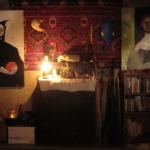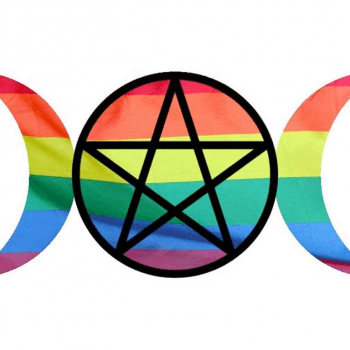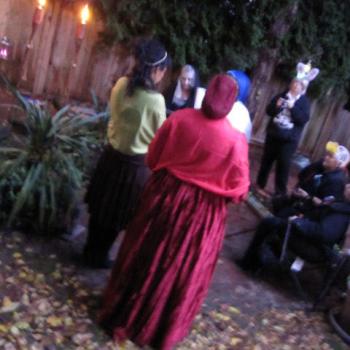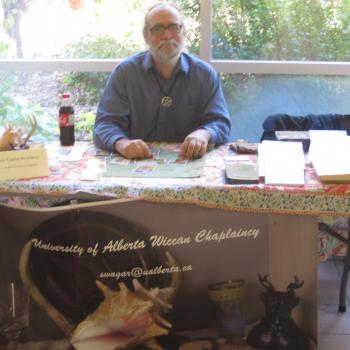
Complementarity theology which argues that women and men have “separate but equal” roles in society and in life, is prominent in some conservative Christian groups (the American Southern Baptist Convention is the denomination that comes to mind for me). It is based, in their case, in an interpretation of the deutero-Pauline Epistle to Timothy, modulated through patriarchal cultural norms.
It is also, however, found in Wiccan groups. Those Wiccan groups that are strongly polarity oriented, in which there are specific roles only for female persons and roles only for male persons, and also those Dianic groups that are essentialist – that argue that there is an essence of femaleness that is utterly different from maleness – are practicing a version of this unfortunate theology.
Just like the African-Americans found with the notion of “separate but equal” laws and schooling and so on during the Jim Crow era, complementarity inevitably results in one group (women or people of colour) getting the short end of the stick. By saying there are some things that are natural to women (generally the nurturant and private relationship and family-supporting qualities) all the rest of the world is given to men. The arena of women’s action and authority becomes narrower and narrower.
Also, by extension, other boundaries and barriers are more easily set up – if there are separate women’s spheres then why not separate spheres for racial minorities? Those spheres will always be smaller than the spheres of the majority groups, of course, and always under the loving and benevolent fatherly eyes of the majority, ‘for their own good’. But, it’s just natural, right?

As I’ve argued before, straight-up butch-femme views of the divine are ridiculously inadequate. There are goddesses who are very butch, Warrior goddesses who are dangerous and powerful. There are also soft, nurturing, caring aspects of masculinity expressed in the gods. There are gods beyond gender, genderqueer and fluid deities. Just as human sexuality and gender are much more complicated and interesting than a yes/no binary, so, except even more so, are the divine energies underlying appearances.
Rather than getting hung up on the yes/no or trying to fit yourself into a box determined by one part of yourself – your genitals, or sexual preference, or height, or whatever, ask the important questions: What are your goddesses and gods calling you to do and be in the world? How can you be authentic and whole and real? And who are all the people that you can cooperate with to make your shared vision real?
This complementarity stuff, just like strong versions of polarity, serves to separate and isolate us from one another. Just like “one true love” and “soul mates” and jealousy keep us from loving widely, trusting widely, and building friendships and community. Action in the world makes the divine real – the goddesses and gods are manifest in our relationships to one another and in our actions in the world, not abstractly but here and now.
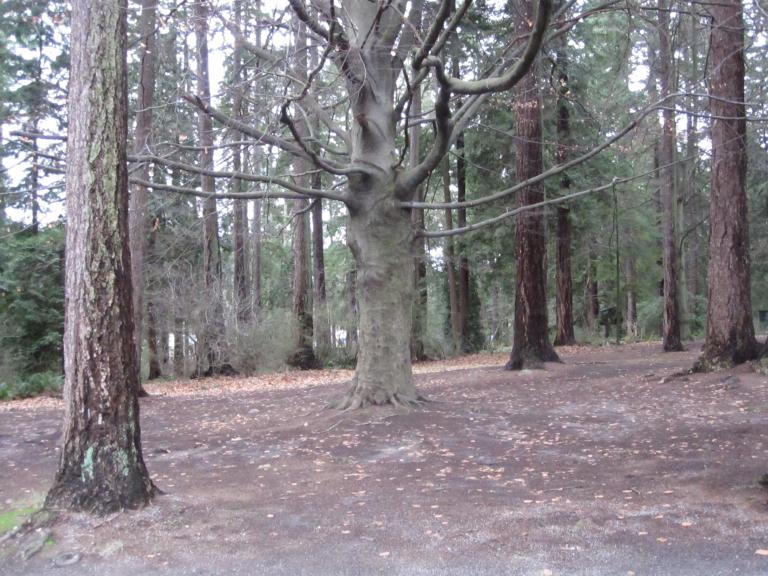
Subcultural communities, like neo-Paganism, can try to change aspects of relationships and life that we find oppressive in the larger society. We do this, as best we can, by acting differently about those things and by talking about what we’re doing and why. Of course, this communitas that we explore at our religious retreats is a fiction, a heterotopian sanctuary set aside temporarily from mundane life, not truly the brave new world of our dreams, and so there’s often an awkward fit and a lot of emotional and behavioral residue from the larger society. This does not mean that we are not sincerely trying to live life differently and create new ways of relating to one another – awkwardness is not insincerity, after all.
Obnoxious and sometimes inconsistent though I am, I do try to live in accord with what I believe to be right, and it has made me happier. There’s a lot of walking wounded in the Pagan community, and a lot of prima donnas, and some exploitative jerks and so on, but there is a genuine spiritual core that is very worthwhile, refracted however awkwardly and partially through the Goddess’ people. A spiritual core that I believe is our very own, and something I am dedicated to helping people connect to and deepening – nobody is condemned to triviality, nobody is pathetic in all parts of them, all share in the divine possibility.


